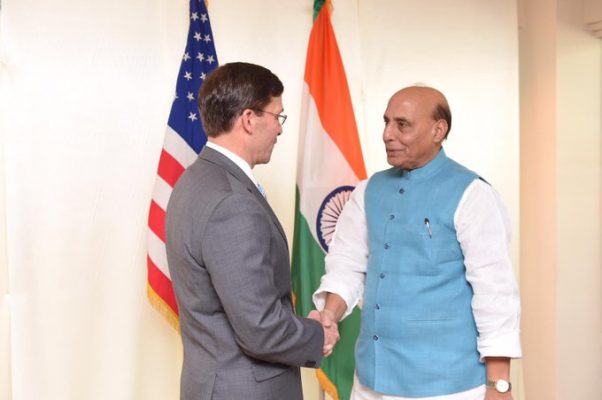
Washington: US Secretary of Defense Mark Esper said that departmental planners should look to cut legacy programmes first to preserve funding for modernisation in case Pentagon faces tighter budgets in the coming years.
“Frankly, my inclination is not to risk any in the modernisation programmes; it’s to go back and pull out more of the legacy programmes,” Esper said regarding modernisation priorities, such as shipbuilding, which might be on the table.
“We need to move away from legacy [programmes] and we need to invest those dollars into the future. We have a lot of legacy programmes out there right now. I could pick dozens out from all branches of the services. So that is where I would start,” he said.
“What that would mean is probably accepting some near-term risk, but I think that is something [that has to happen], given the trajectory that we see China is on, and we know where Russia may be going in the coming years. So that is one place where I would begin, but we’re going to be working through this course of action.”
“If you want to call it that, that’s fine with me,” Esper said when asked if his new review was the equivalent of a Pentagon-wide night court process.
The secretary also emphasised that he’s not going to “risk the strategic deterrent,” reiterating that modernising America’s nuclear capabilities remains the department’s top priority.
Budgets were already expected to be flat or decline slightly in the coming years before the Coronavirus pandemic, which has required the US government to pump trillions of dollars into the economy. Esper said that “tremendous load” is something the department must consider as it plots a budget strategy for fiscal 2022 and beyond.
His comments match what the secretary said on May 4 during an appearance at the Brookings Institution, where he said the spending spree in response to the spread of COVID-19 means the department’s ongoing efforts to find internal efficiencies must continue to bear fruit.
During the Brookings event, Esper noted that the department will “likely need” extra money from Congress if a fourth Coronavirus supplemental fund is worked out, in order to help cover costs for medical supplies procured by the Pentagon.








